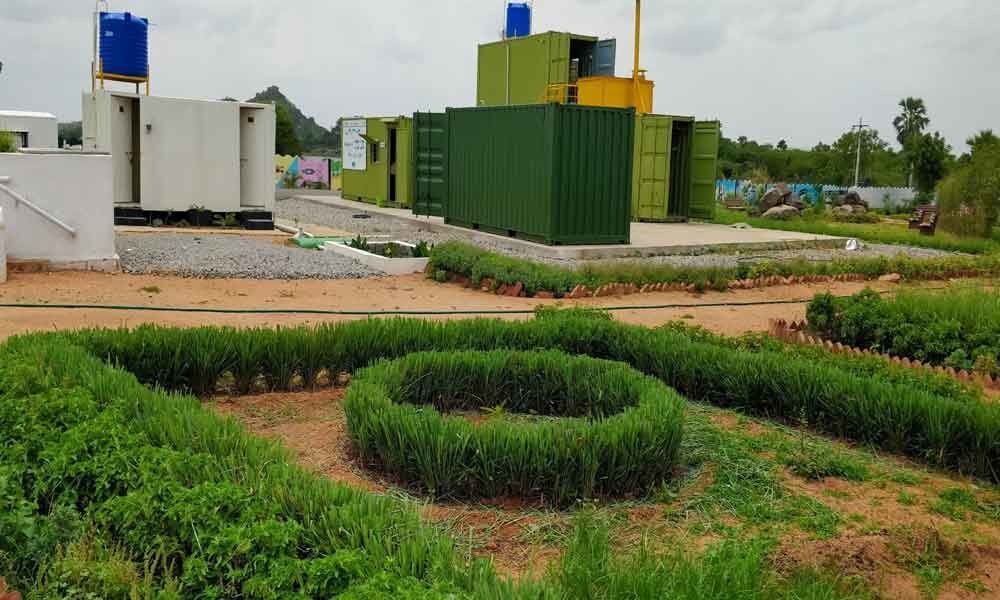Live
- Govt aims at empowerment of women, says Minister Seethakka
- Gold rates in Vijayawada today slashes, check the rates on 14 December, 2024
- Kothagudem: District to play key role in coal production
- Students can achieve greatness through education: Dattatreya
- District-Level Science Exhibition Concludes: 26 projects selected for State-level exhibition
- Atul suicide case: Wife absconds, cops arrest kin
- MP Raghuram demands high-level committee on Polavaram project
- Former KAS officer is successor to Vishva Vokkaliga Mahasamsthana Math
- Nagarkurnool: 3 staff members issued memos; investigation underway
- Govt medical college being constructed without supervision
Just In

The Government of Telangana has embarked on Swachh Telangana Mission to provide access to individual household latrines (IHHL), public toilets and community toilets to make all urban local bodies (ULBs) to make them open defecation free (ODF).
First the facts: Only 50% of the area in Greater Hyderabad region is sewered which means that half of the households and establishments in the city do not have an underground drainage system. The area that has a sewerage system was developed during the era of the Nizam when the City Improvement Board was set up.
The Government of Telangana has embarked on Swachh Telangana Mission to provide access to individual household latrines (IHHL), public toilets and community toilets to make all urban local bodies (ULBs) to make them open defecation free (ODF).
The government vide GO 176 issued a policy on 'Faecal Sludge and Septage Management (FSSM)' and encouraged all urban local bodies (ULBs) to establish Faecal Sludge Treatment Plants (FSTPs) or promote co-treatment of faecal sludge at the existing sewage treatment plants.
The18 STPs in the city are being converted into co-treatment facilities and private desludging operators have been empanelled and 61 trucks are provided with license to operate.
Srinivas Chary Vedala, Director, Centre for Energy, Environment, Urban Governance & Infrastructure Development, ASCI, says: "Urban areas in India are facing the burden of indiscriminate disposal of untreated septage (faecal sludge evacuated from pit latrines and septic tank periodically) by unregulated private operators causing unprecedented degradation of environment and harm to public health. Usage of toilets coupled with safe management of faecal sludge and septage is critical for better sanitation outcomes and building liveable cities."
There are 110 private trucks in the city that transport faecal matter from septic tanks and deposit them in water bodies. The non-sewered areas in the city depend on these trucks every few months once the septic tank gets filled.
Like in most Cities in India, Hyderabad is currently facing a large burden of untreated faecal waste entering the environment due to indiscriminate disposal of septage (waste evacuated from septic tanks periodically) in open areas and water bodies by unregulated private desludgers causing significant public health and environmental risks.
Srinivas Chary says, "The faecal sludge would be recycled and the resultant material could be used to make bricks for the construction industry. It is just the beginning."
Similarly, as a pilot project in Warangal, Faecal Sludge Treatment Plants (FSTP) was established based on thermal technology in a sanitation resource park to promote awareness about sanitation and technologies(20KLD) ii) Geo-tube technology (15 kld). The waste from these treatment plants is recycled for agriculture use and for construction industry (bricks).

© 2024 Hyderabad Media House Limited/The Hans India. All rights reserved. Powered by hocalwire.com







